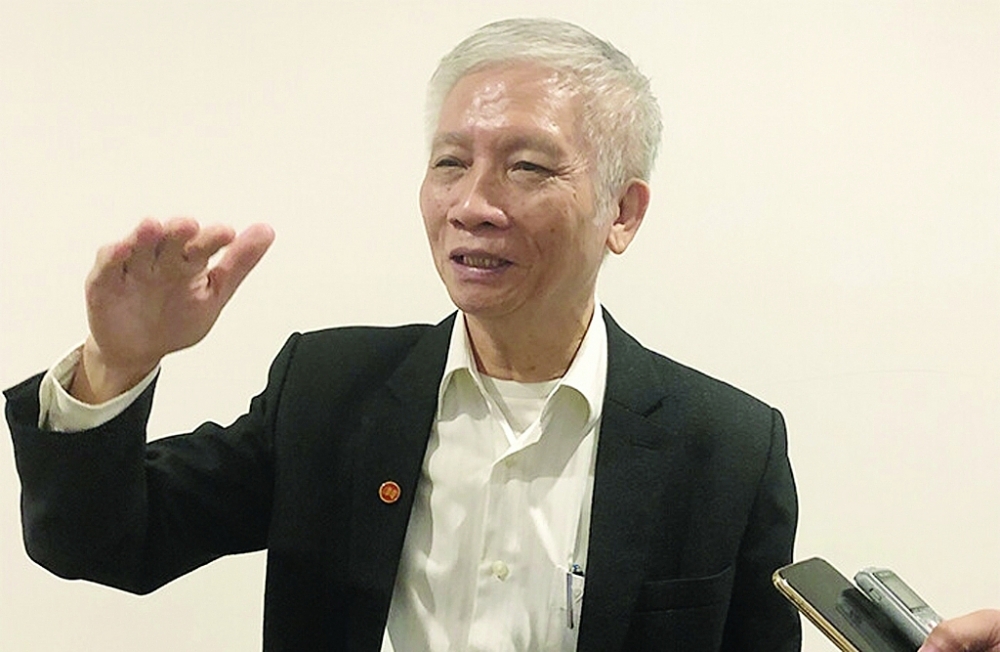Logistics businesses must manage to reduce costs
Speaking with Customs News, Mr. Nguyen Tuong, Senior Advisor of the Vietnam Logistics Service Enterprises Association (VLA) said that thanks to the implementation of new generation of free trade agreements (FTAs), import-export firms will benefit most, thereby stimulating the development of the logistics industry.
 |
|
Mr. Nguyen Tuong, Senior Advisor of the Vietnam Logistics Service Enterprises Association (VLA) |
Therefore, logistics enterprises need to keep their heads above water to reduce costs and make good use of opportunities.
How do you assess the development prospects of Vietnam's logistics industry in 2022, especially when new generation FTAs such as the Vietnam-EU FTA (EVFTA), and the Regional Comprehensive Economic Partnership (RCEP) have been and are taking effect?
New generation FTAs, especially EVFTA and RCEP, will promote both trade and logistics development. Goods exported to the EU have grown rapidly. Thanks to that, enterprises providing logistics services also benefit.
RCEP, which took effect from January 1, 2022 and is in the early stages of implementation, has a lot of potential. Currently, ASEAN and countries such as Japan, Korea, China, New Zealand, and Australia are the main export markets of Vietnam.
Moreover, Vietnam is fully adaptable to the terms in RCEP. Countries in RCEP are also familiar markets for Vietnamese logistics enterprises. This year, VLA encourages members and facilitates most for businesses to enter the RCEP market.
In general, new generation FTAs create impetus for import and export development, thereby stimulating the development of the logistics industry. In turn, the logistics industry is also looking for ways to digitally transform, expand markets, and develop strong businesses to meet requirements and make good use of the opportunities.
In addition to the favorable factors, amid current fluctuations of geopolitics, especially the conflict between Russia and Ukraine, at the same time, the Covid-19 pandemic, especially in China, how do you evaluate the development of the logistics industry in the future?
The Russia-Ukraine conflict has been affecting the global supply chain. It is very difficult to supply goods from Russia and Ukraine to the countries involved. Moreover, transportation via train, air, and especially by sea is also hindered.
Last but not least, domestic logistics faces difficulties due to China’s ‘Zero Covid-19’ policy, a nationwide blockade.
Of 10 main ports in the world, China has seven. Chinese goods are imported and exported in very large quantities, so recently, during the outbreak of the Covid-19 pandemic, some ports in the south of China could not handle goods, causing congestion, affecting the global supply chain. That also affects Vietnam's logistics activities, especially container ships.
In the past two years, logistics costs have been increasing. Besides solutions to remove difficulties from state management agencies, how should logistics enterprises themselves focus on solutions to reduce pressure?
Both the supply chain of goods and logistics activities have been congested. The shortage of empty containers, the delay in train schedules, etc. have greatly affected logistics costs. As a result, the cost of sea logistics has increased very high. Meanwhile, up to 92% of Vietnam's import and export goods go by sea.
Logistics enterprises must find ways to reduce costs in order to meet requirements through improving service delivery quality and digital transformation. Logistics service enterprises also arrange, reorganize, and access more transport methods and the mode of transportation, for example, reducing shipping by sea and switching to transportation by rail.
Amid the market domination of foreign shipping lines, recently VLA has also actively proposed to the Ministry of Transport to develop Vietnam's shipping fleet in the future, which can be one of the important measures to reduce logistics costs.
Thank you Sir!








